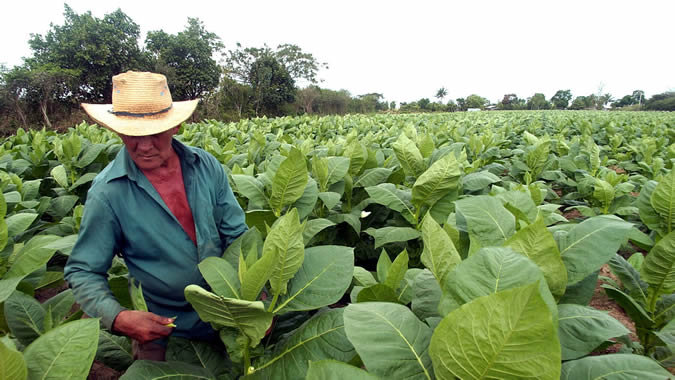Experts and Authorities Propose Policies for Family Farming to Reflect Rural Reality
Work area(s)
Authorities, experts and representatives of farmer’s organizations meet at ECLAC. A document that compiles case studies in 11 countries of the region was presented during the event.

(3 November 2014) A new generation of policies is needed to continue strengthening family farming in the region and respond to rural reality, particularly the situation of women and young people. Such policies must include the farming population, according to authorities, experts and other representatives who participated in an event that opened today at the headquarters of the Economic Commission for Latin America and the Caribbean (ECLAC), in Santiago, Chile.
The meeting on Family Farming and Family Agriculture in Latin America and the Caribbean: Current Situation and Challenges for the Medium- and Long-Term was held in the framework of the International Year of Family Farming.
The event was organized by ECLAC, the Food and Agriculture Organization of the United Nations (FAO), the Inter-American Institute for Cooperation on Agriculture (IICA), the Agricultural Research Centre for International Development (CIRAD) and the Government of Chile, with the collaboration of the International Fund for Agricultural Development (IFAD).
In his opening comments, Antonio Prado, ECLAC’s Deputy Executive Secretary, identified three big challenges to the sector: to generate policies that are viable in a context of productive transformation; to promote the development of skills among farmers considering their low level of schooling; and to develop policies aimed at women and young people to facilitate generational change.
Raúl Benítez, FAO’s Regional Representative for Latin America and the Caribbean, stressed that “the entire world is keeping an eye on what the region is doing in terms of family farming,” thanks to the progress made in recent years. Víctor Villalobos, IICA’s Regional Director, called on countries to innovate and make family farming “more competitive, efficient, sustainable and inclusive.”
Álvaro Ramos, from IFAD, called for ending the subordination of family farming compared to other sectors and markets, as well as improving its statistical visibility; and Pascal Delisle, Head of the Regional Delegation for Cooperation for the Southern Cone and Brazil at the Embassy of France, underscored the cross-over between family farming issues, the post-2015 development agenda and the new global climate agreement being discussed these days.
Claudia Carbonell, Director of the Office of Agricultural Studies and Policies (Odepa) of Chile’s Agricultural Ministry, referred to labor and education reform among the policies under study today in Chile aimed at including family farming in the process of development with equality in the country.
Finally, Fernando López, from the Alliance for Peoples’ Food Sovereignty, and Manuel Llao, representative of family and indigenous farming organizations in Chile, asked for inclusive policies, which recognize the rights to land, water and seeds as well as the existing diversity in the sector.
The book Public Policies and Family Farming in Latin America and the Caribbean: Balance, Challenges and Perspectives (Spanish only) was presented during the international conference. The book is a compilation of case studies on public policy for family farming implemented in 11 countries of the region.
Country(ies)
- Latin America and the Caribbean
Contact
Public Information Unit
- prensa@cepal.org
- (56 2) 2210 2040